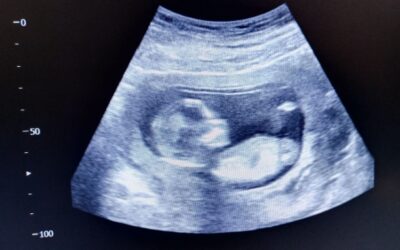By Corinne Murdock |
State Rep. Stephanie Stahl Hamilton (D-AZ-10) stole Bibles from the Arizona State Capitol, per security footage of the lawmaker.
Stahl Hamilton would hide the Bibles underneath furniture cushions and fridges. This came to light after members noticed the Bibles missing from the members-only lounge, beginning at the start of this year. House personnel placed hidden cameras in the members lounge to discover what happened.
Security footage showed Stahl Hamilton swiping a Bible off a table from the members-only lounge. Stahl Hamilton claims to be an “ordained minister” with the Presbyterian denomination.
AZ Family first caught wind of Stahl Hamilton’s Bible swiping. They confronted her, on camera, after Stahl-Hamilton hung up on the phone with them. Stahl Hamilton initially insisted that she wasn’t aware of the accusations against her.
“I don’t want to talk to you,” said Stahl Hamilton. “Who said anything about hiding Bibles?”
When AZ Family reporter David Caltabiano informed Stahl Hamilton that there was security footage of her swiping the Bible, Stahl Hamilton turned away from where she was headed and retreated to the private entrance from which she’d come.
Republican lawmakers made light of Stahl Hamilton’s disdain for Bibles at the capitol.
This wouldn’t be Stahl Hamilton’s first contradiction between her political activity and her alleged faith.
Stahl Hamilton was endorsed by Planned Parenthood and supports abortion.
Stahl Hamilton has also backed laws advocating for LGBTQ+ lifestyles and ideologies for children and adults.
Most of Stahl Hamilton’s career prior to the legislature purportedly concerned Christian ministry. Stahl Hamilton received an undergraduate degree in Christian education prior to receiving a seminary degree. Stahl Hamilton then worked as the director of Christian Education and Youth Ministry for the Flagstaff Federated Community Church, before working as another youth ministry director at St. Mark’s Presbyterian Church.
The 2005 case Van Orden v. Perry dispelled misconceptions about the presence of Christian text on government property as a violation of the separation between church and state. In the case, a citizen claimed that the Texas State Capitol grounds couldn’t contain a monument bearing the Bible’s Ten Commandments. The Supreme Court disagreed in a 5-4 decision.
Chief Justice William Rehnquist cited from Zorach v. Clauson in his opinion for the court:
“‘[W]e find no constitutional requirement which makes it necessary for government to be hostile to religion and to throw its weight against efforts to widen the effective scope of religious influence,’” quoted Rehnquist.
Justice Stephen Breyer wrote similarly in a concurring opinion:
“The Establishment Clause does not compel the government to purge from the public sphere all that in any way partakes of the religious,” wrote Breyer. “Such absolutism is not only inconsistent with our national traditions… but would also tend to promote the kind of social conflict the Establishment Clause seeks to avoid.”
Corinne Murdock is a reporter for AZ Free News. Follow her latest on Twitter, or email tips to corinne@azfreenews.com.








